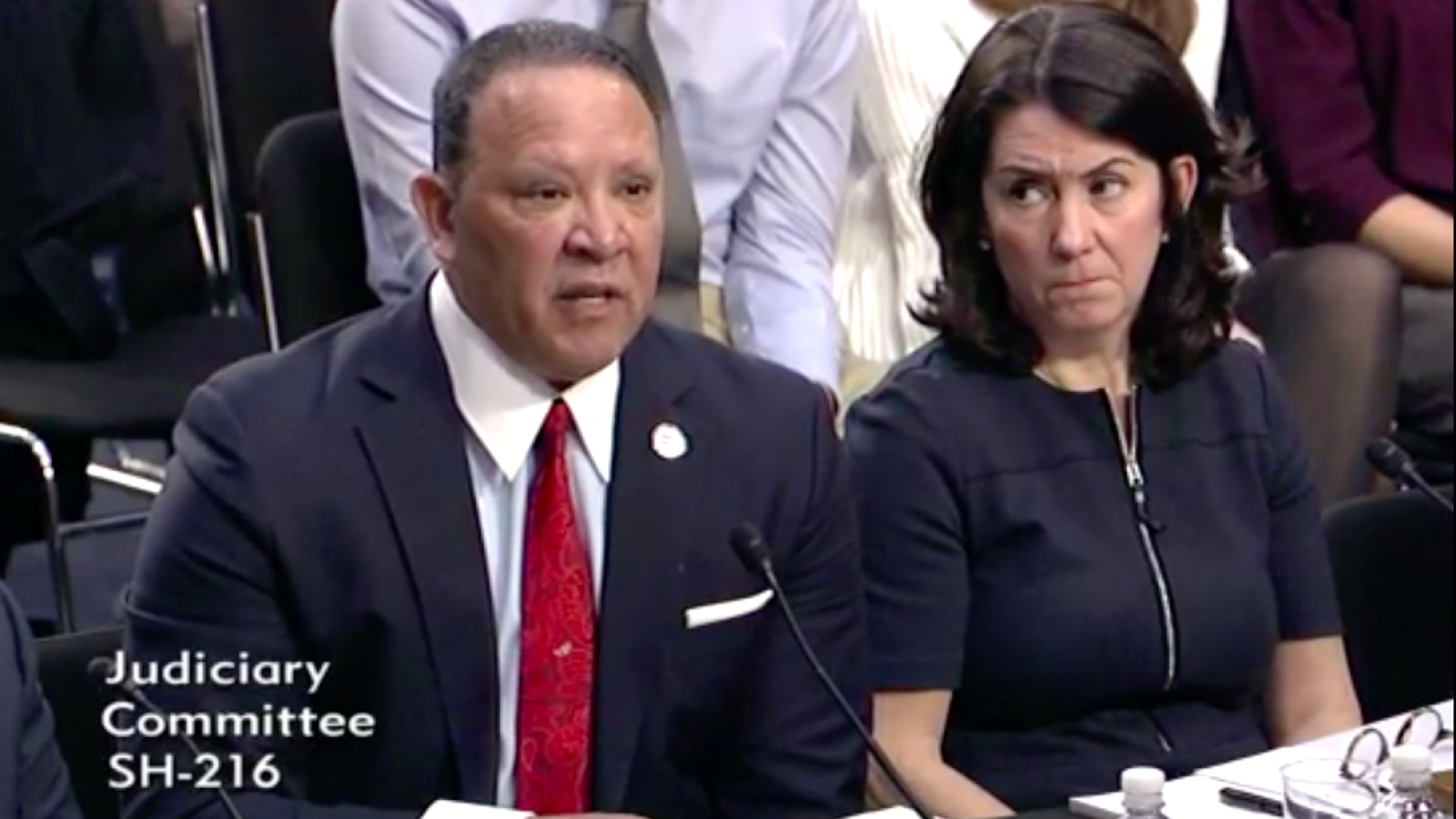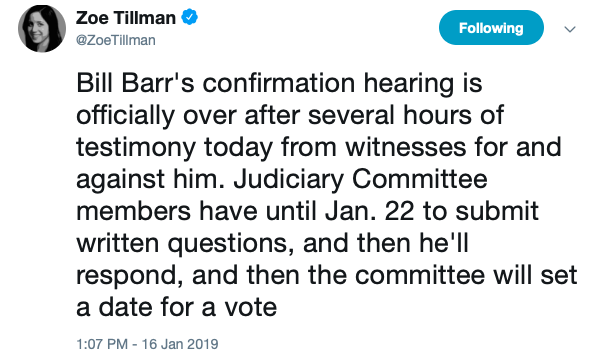
The Senate Judiciary Committee spent its second day of the William Barr confirmation hearing listening to testimony and questioning people both for and against the nominee, including legal experts, former colleagues, and civil rights and gun control advocates.
The Honorable Michael B. Mukasey: Former United States Attorney General
Mr. Derrick Johnson: President and Chief Executive Officer, NAACP
The Honorable Larry D. Thompson: Former United States Deputy Attorney General
The Honorable Marc Morial: President and Chief Executive Officer, National Urban League
Ms. Mary Kate Cary: Former speechwriter for President George H.W. Bush
Professor Neil J. Kinkopf: Professor of Law, Georgia State University College of Law
Professor Jonathan Turley: Professor of Public Interest Law, George Washington University Law School
Reverend Sharon Washington Risher: Ordained Pastor
Mr. Chuck Canterbury: National President, Fraternal Order of Police
Responding to a question from Ranking Member Dianne Feinstein (D-CA) about Barr's memo and how his confirmation may threaten Special Counsel Robert Mueller's probe, Neil Kinkopf, former DOJ special assistant under President Clinton and current Georgia State University College law professor, said the memo states the president is the executive branch so that all executive power lies with the president personally.
The memo, as Kinkopf explains, says the president can control any litigation or prosecution, including prosecution of him personally or his family members. It adds that anyone serving under the president is the president's hands. Kinkopf says the memo reads the Constitution in a way that frees the president from constitutional constraints.
Jonathan Turley, George Washington University public interest law professor, disagreed. He argued Barr's memo was narrow in scope and allowed for the consideration that a president could abuse his power and be held accountable for such behavior. Turley claimed Barr disagrees with the position of Trump legal team that president cannot be prosecuted while in office.
Feinstein said that Barr obviously is qualified and capable, but she is struggling to understand why we would want someone who is all powerful to take these actions.
Michael Mukasey, former attorney general under President George W. Bush, explained the Constitution says all executive power lies with the president, but there is a constraint in that the president could be prosecuted for any abuse of that power.
Barr spent almost nine hours answering questions Tuesday from lawmakers, and much of that discussion centered on Mueller’s investigation, and whether Barr would seek to influence the outcome of that probe.
Barr, who previously served as attorney general to President George H.W. Bush in the early 1990’s, pledged to let Mueller finish his work and release as much information about his findings as possible, but cautioned that Justice Department regulations may prevent any report written by Mueller from being made public.
After Barr’s testimony, the top Democrat on the panel, Sen. Dianne Feinstein (Calif.) said she expected he would be easily confirmed.
However, on Wednesday, Senator Feinstein added a condition to her own vote: Barr has to commit to releasing Mueller's report and not a report of his own summarizing what he read.
“This is a big report, and the public needs to see it, and with exception of very real national security concerns, I don’t even believe there should be very much redaction,” Feinstein said. “So, I am hopeful that that report will be made public, and my vote depends on that, Mr. Chairman, because an attorney general must understand the importance of this to the nation as a whole, to us as a Congress, as well as to every American.” ...
(...)
Barr, who previously served as attorney general to President George H.W. Bush in the early 1990s, pledged to let Mueller finish his work and release as much information about his findings as possible, but cautioned that Justice Department regulations may prevent any report written by Mueller from being made public.
“The rules I think say the special counsel will prepare a summary report on any prosecutive or declination decisions, and that shall be confidential and be treated as any other declination or prosecutive material within the department,” Barr said Tuesday.
(...)
Addressing whether Barr would release the Mueller report, Jonathan Turley ... testified that Barr could not both “satisfy ethical standards” and commit in advance to releasing information “he hasn’t seen yet.”
“The only thing a nominee can say is that he is going to err on the side of transparency,” Turley said.
The Senate could vote on Barr’s confirmation next month.
BuzzFeed News' Zoe Tillman explains what's next:
